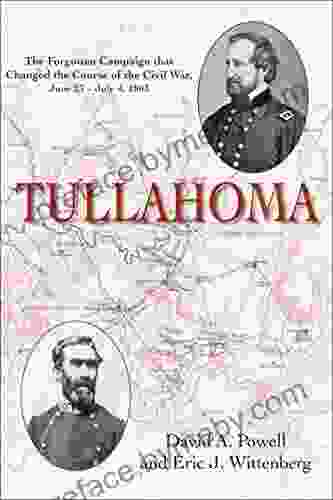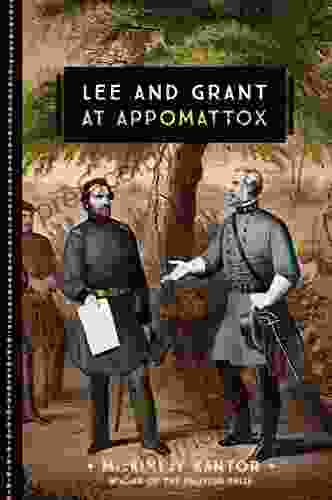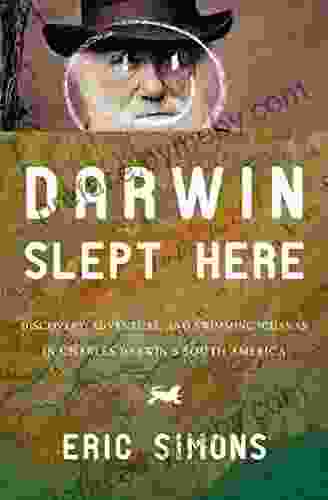The Forgotten Campaign That Redefined the Civil War: Vicksburg and Gettysburg, June 23 - July 1863

Unveiling the Shadows of History
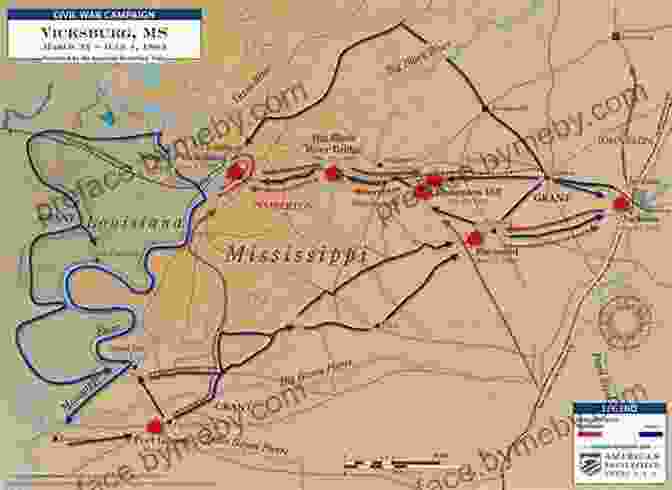
4.5 out of 5
| Language | : | English |
| File size | : | 30928 KB |
| Text-to-Speech | : | Enabled |
| Screen Reader | : | Supported |
| Enhanced typesetting | : | Enabled |
| X-Ray | : | Enabled |
| Word Wise | : | Enabled |
| Print length | : | 393 pages |
| Lending | : | Enabled |
In the annals of the American Civil War, amidst the grand battles and towering figures, lies a hidden tale—a campaign that unfolded in the sweltering heat of Mississippi and the rolling hills of Pennsylvania and would profoundly alter the course of history. The "Forgotten Campaign" of June 23 - July 1863, simultaneously encompassing the sieges of Vicksburg and Gettysburg, proved to be a pivotal moment in the war, yet its significance has been largely overshadowed by its more famous counterparts.
The Vicksburg Siege: A Gateway to the Mississippi
On June 23, 1863, Union General Ulysses S. Grant launched a daring assault on Vicksburg, Mississippi, a Confederate stronghold that controlled access to the Mississippi River. For months, the Union had grappled with the challenge of opening this waterway, the lifeline of the Confederacy. The city's strategic location made it a formidable bastion, protected by towering bluffs and a labyrinthine network of fortifications.
Grant's army relentlessly bombarded Vicksburg from the north, while another Union force attacked from the south. The fighting was fierce, with both sides enduring heavy casualties. As the siege dragged on, Grant Free Downloaded the construction of canals to bypass the Confederate defenses. This bold maneuver, combined with relentless artillery bombardment, gradually weakened the Confederate resolve.
On July 4, 1863, Vicksburg finally fell to the Union. The capture of this strategic city marked a major turning point in the war. It severed the Confederacy in two, cutting off supplies to its western territories and making it increasingly difficult for the South to maintain its war effort.
Gettysburg: A Clash of Titans in Pennsylvania
While the siege of Vicksburg raged to the west, another epic confrontation was unfolding in the eastern theater of the war. On July 1, 1863, Confederate General Robert E. Lee invaded Pennsylvania, hoping to secure a decisive victory on Northern soil. His army encountered Union forces under General George G. Meade near the town of Gettysburg.
The Battle of Gettysburg, fought from July 1-3, was one of the largest and bloodiest battles of the war. Over three days, the armies clashed in a series of fierce engagements, culminating in the legendary "Pickett's Charge" on the third day. Despite the heroic efforts of the Confederate soldiers, the Union line held firm.
The defeat at Gettysburg was a crushing blow to the Confederacy. It marked the end of Lee's invasion of the North and paved the way for the eventual Union victory. The battle's strategic significance can hardly be overstated; it reversed the momentum of the war and gave the Union a newfound confidence.
A Forgotten Yet Pivotal Chapter
The significance of the "Forgotten Campaign" of June 23 - July 1863 cannot be overstated. The simultaneous victories at Vicksburg and Gettysburg were pivotal moments in the Civil War, shaping the outcome of the conflict and hastening the Confederacy's ultimate defeat.
Yet, despite their importance, these campaigns have been largely overshadowed by the more famous battles of Antietam, Shiloh, and Appomattox. Historians have attributed this to a combination of factors, including the absence of a single, iconic battle and the lack of charismatic generals who could capture the public's imagination.
However, it is imperative that we rediscover and appreciate the "Forgotten Campaign." The simultaneous sieges of Vicksburg and Gettysburg stand as testaments to the courage, determination, and sacrifices made by both sides in this transformative conflict. Understanding this campaign provides a deeper appreciation for the complexity and multifaceted nature of the Civil War.
A Window into the Past
For those seeking a deeper understanding of this pivotal moment, there is no shortage of resources available. Scholars and historians have meticulously documented the events of the "Forgotten Campaign" through books, articles, and historical accounts. Here are a few suggestions:
- The Forgotten Campaign: Vicksburg, Gettysburg, and the End of the Civil War by Thomas Goodrich
- Vicksburg: Grant's Masterpiece by William T. Sherman
- Gettysburg: The Complete History by Richard Slotkin
- The Civil War: A Narrative, Volume 2 by Shelby Foote
These works offer a comprehensive insight into the "Forgotten Campaign," providing detailed accounts of the battles, strategies, and personalities involved. Whether you are a seasoned history buff or simply curious about this overlooked chapter, these books will transport you back in time, allowing you to witness firsthand the events that shaped the destiny of a nation.
The "Forgotten Campaign" of June 23 - July 1863 is a fascinating and underappreciated chapter in the history of the American Civil War. The simultaneous victories at Vicksburg and Gettysburg were turning points that profoundly influenced the outcome of the conflict. It is time to lift these campaigns out of obscurity and recognize their pivotal role in shaping the course of American history. By exploring the "Forgotten Campaign," we gain a deeper understanding of the complexities and consequences of war and the profound sacrifices made by those who fought and lived through it.
4.5 out of 5
| Language | : | English |
| File size | : | 30928 KB |
| Text-to-Speech | : | Enabled |
| Screen Reader | : | Supported |
| Enhanced typesetting | : | Enabled |
| X-Ray | : | Enabled |
| Word Wise | : | Enabled |
| Print length | : | 393 pages |
| Lending | : | Enabled |
Do you want to contribute by writing guest posts on this blog?
Please contact us and send us a resume of previous articles that you have written.
 Book
Book Novel
Novel Page
Page Chapter
Chapter Text
Text Story
Story Genre
Genre Reader
Reader Library
Library Paperback
Paperback E-book
E-book Magazine
Magazine Newspaper
Newspaper Paragraph
Paragraph Sentence
Sentence Bookmark
Bookmark Shelf
Shelf Glossary
Glossary Bibliography
Bibliography Foreword
Foreword Preface
Preface Synopsis
Synopsis Annotation
Annotation Footnote
Footnote Manuscript
Manuscript Scroll
Scroll Codex
Codex Tome
Tome Bestseller
Bestseller Classics
Classics Library card
Library card Narrative
Narrative Biography
Biography Autobiography
Autobiography Memoir
Memoir Reference
Reference Encyclopedia
Encyclopedia Felicien Kanyamibwa
Felicien Kanyamibwa Nanna Katrine Luders Kaalund
Nanna Katrine Luders Kaalund Elliot Davis
Elliot Davis Miranda Kenneally
Miranda Kenneally Emma Haslett
Emma Haslett Judith Watt
Judith Watt Michael P Branch
Michael P Branch Elia Kazan
Elia Kazan James Wallace
James Wallace Elaina Garcia
Elaina Garcia Linda Marie Westervelt
Linda Marie Westervelt Rakesh V Vohra
Rakesh V Vohra Elizabeth Parker
Elizabeth Parker Esther Wojcicki
Esther Wojcicki Geoffrey Hindley
Geoffrey Hindley Sam Sifton
Sam Sifton Richard Schechner
Richard Schechner Eileen Riley Hall
Eileen Riley Hall Jeremy Beer
Jeremy Beer Elisabetta Panzica
Elisabetta Panzica
Light bulbAdvertise smarter! Our strategic ad space ensures maximum exposure. Reserve your spot today!

 Jackson BlairAdventure On Fish Man Island One Piece Graphic Novel: A Captivating Dive into...
Jackson BlairAdventure On Fish Man Island One Piece Graphic Novel: A Captivating Dive into...
 Dallas TurnerReclaiming History and Healing Wounds: A Journey of Reconciliation in "In the...
Dallas TurnerReclaiming History and Healing Wounds: A Journey of Reconciliation in "In the... Pete BlairFollow ·6.7k
Pete BlairFollow ·6.7k Dwayne MitchellFollow ·13k
Dwayne MitchellFollow ·13k Billy FosterFollow ·7.3k
Billy FosterFollow ·7.3k Rudyard KiplingFollow ·12.6k
Rudyard KiplingFollow ·12.6k Jake PowellFollow ·4.9k
Jake PowellFollow ·4.9k Steven HayesFollow ·15.1k
Steven HayesFollow ·15.1k Juan ButlerFollow ·9.6k
Juan ButlerFollow ·9.6k Colby CoxFollow ·3k
Colby CoxFollow ·3k

 Richard Adams
Richard AdamsGame Development with Rust and WebAssembly: A...
Are you passionate...

 David Baldacci
David BaldacciGendered Identity and Aspiration on the Globalized Shop...
: The Convergence of Gender, Identity, and...

 Natsume Sōseki
Natsume SōsekiFresh Eyes On Panama: A Captivating Exploration of a...
Panama, a country often overshadowed by its...
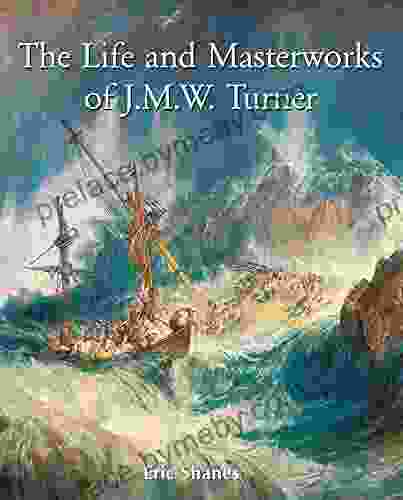
 Adrian Ward
Adrian WardThe Life and Masterworks of J.M.W. Turner: A Timeless...
The Man Behind the Masterpieces ...
4.5 out of 5
| Language | : | English |
| File size | : | 30928 KB |
| Text-to-Speech | : | Enabled |
| Screen Reader | : | Supported |
| Enhanced typesetting | : | Enabled |
| X-Ray | : | Enabled |
| Word Wise | : | Enabled |
| Print length | : | 393 pages |
| Lending | : | Enabled |


